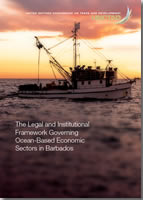
The United Nations Convention on the Law of the Sea of 10 December 1982 (hereafter called UNCLOS) sets out a comprehensive legal framework for all activities in the oceans and seas and has often been referred to as “a constitution for the oceans”.
Other international ocean-related instruments as well as State Parties’ national laws, regulations, policies and institutional operations should be compliant with the provisions of UNCLOS and facilitative of its general aims and objectives.
In many ways UNCLOS was ahead of its time as, at the time of its adoption, it established legal frameworks for the operation of then burgeoning areas of ocean affairs and law of the sea, namely, protection and preservation of the marine environment, development of the resources of the Area and sustainable development.
Therefore, at the advent of the 2030 Agenda for Sustainable Development,2 a further agenda continuing and building on the work of the Millennium Development Goals and setting out 17 Sustainable Development Goals (SDGs) with 169 related targets, there was already in place a legal framework for the operation of Sustainable Development Goal (SDG) 14 “to conserve and sustainably use the oceans, seas and marine resources for sustainable development”.
The Evidence-based and Policy-coherent Oceans Economy and Trade Strategy (OETS) project aims to support coastal developing countries, including Small-Island Developing States, in deriving economic benefit from the sustainable use of marine resources within the framework of UNCLOS through the sustainable trade of products and services in selected ocean-based economic sectors.
In Barbados the selected ocean-based economic sectors are as follows:
Sustainable marine fisheries
Sustainable marine aquaculture
Seafood processing
Coastal and marine environmental services
In this regard, this report aims to provide an overview of the national legal and institutional frameworks in Barbados that are applicable to the sectors, as well as a description of relevant provisions in UNCLOS and other marine-related international instruments.
Subsequent sections will also identify cross-cutting areas among the legal, institutional and policy frameworks affecting the sectors.



